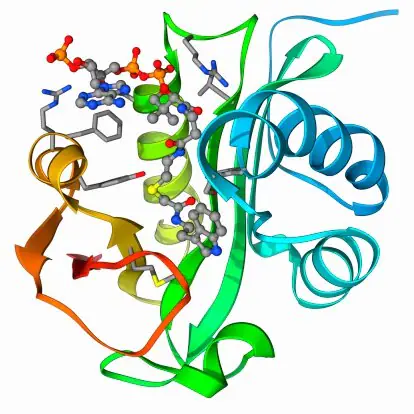Coenzymes
Biochemicals
Coenzymes

Most biochemical reactions in the body are regulated by enzymes. Coenzymes are organic compounds that facilitate the action of enzymes and can bind temporarily or permanently to an enzyme. Coenzymes can catalyze reactions, but not as effectively as when in conjunction with an enzyme.
Coenzymes, which are tightly bound or covalently attached to enzymes, are often referred to as prosthetic groups. Coenzymes, which are more loosely associated with enzymes, can be described as co-substrates. They can serve various functions, including:
- assist in intracellular energy-coupling reactions
- act as carriers of hydrogen atoms, electrons, or chemical groups (e.g. NADH acts as an electron carrier).
- facilitate reactions by associating with enzyme substrates at enzyme active sites.
Coenzymes can be vitamin-derived, such as from B-vitamins and vitamin C. For example, coenzyme A (CoA), an acyl group carrier that is key to metabolism, derives from pantothenic acid. Vitamin C itself is a cofactor for hydroxylases. With the exception of vitamin C, vitamins must be modified in order to serve as coenzymes. Metabolite coenzymes, such as adenosine triphosphate (ATP), are made from nucleotides.
Our high-quality coenzymes accommodate the rigorous demands of your nutrition/food science applications, metabolism research, microbiome research, and disease research. For more specific requirements, we support you with the convenience of customized products and packaging.


